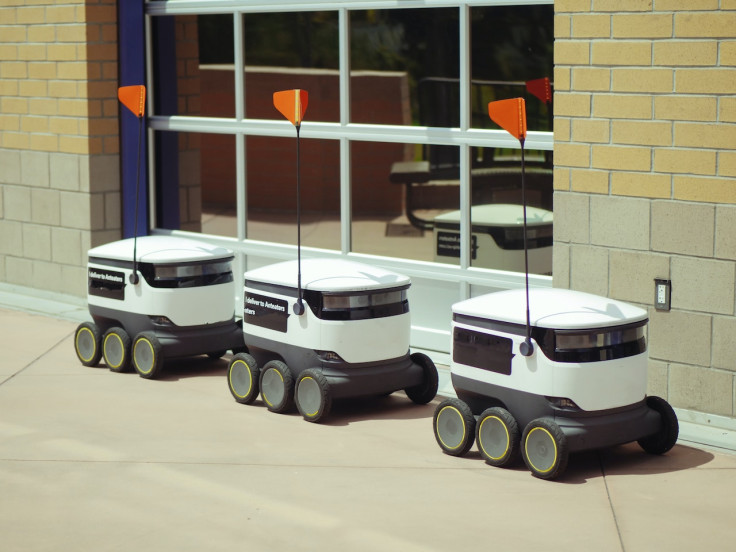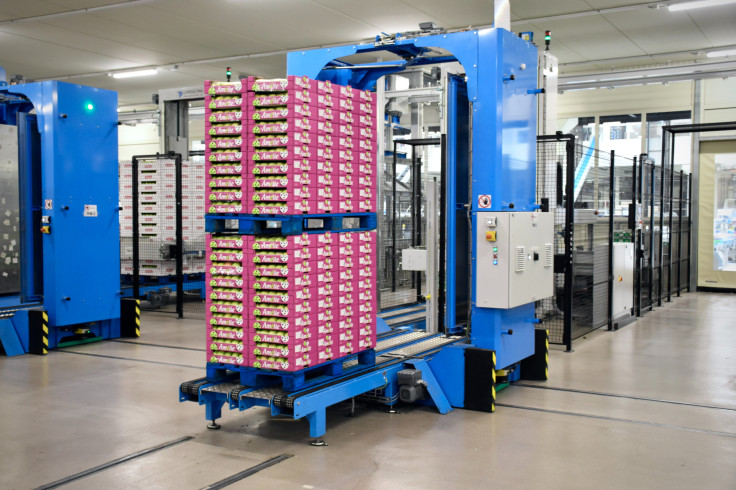AI And Automation Innovation In The Food Industry

The number of businesses using AI and automation in their day-to-day operations stands to increase - in fact, 37% of businesses have already adopted AI technology. More companies realize the potential for automation and optimization that accompanies AI technology.
How does AI apply to the food industry? Keep reading to learn about the latest developments in AI and automation for the food industry. This article will give you an in-depth knowledge of AI for security, manufacturing, health and safety, and customer satisfaction in the food industry.
Why Is AI And Automation The Future Of The Food Industry?
AI and automation are powerful tools at the disposal of businesses in all sectors. Manual data entry processes and repetitive tasks can be time-consuming for employees, which means business leaders are not achieving optimal ROI on employee time.
The food industry is currently facing food and ingredient shortages and supply chain challenges due to the recent boom in eCommerce popularity. To master the difficulties of the modern climate, food manufacturers and food industry businesses are implementing AI and automation. Streamlining everyday operations and optimizing employee time allows for an increased focus on improving business intelligence.
AI And Automation Innovations In The Food Industry
Let's discuss some of the top automation and AI innovations and trends in the food industry. Consider whether any of these innovations would provide a solution to your current manufacturing difficulties.
Food Industry Manufacturing Software
Food industry manufacturing software is a solution that is helping the food industry to implement better inventory management, project management, and business intelligence. Food industry manufacturing software features assist with inventory management, warehouse management, forecasting, costing, and more. By automating these processes, you can gain more insight and a competitive edge in the industry.
Here are some of the best features on offer with food manufacturing software.
Live inventory management
Food manufacturers must have excellent inventory management processes to ensure productivity and meet client and customer expectations. Live inventory management with food manufacturing software automates stock purchases based on sales orders. It aligns with your manufacturing bill of materials to ensure you have all the components necessary for the manufacturing process. It automatically tracks expiry dates for your perishable stock items, ensuring health and safety compliance.
Forecasting
You can forecast future demand with real-time master planning offered by food manufacturing software. You need to know what to expect for seasonal demand fluctuations and be aware of potential cost increases for your manufacturing components. With improved, AI-enabled forecasting, you can make more apt decisions based on actionable data.
Warehouse Management
Warehouse management is instrumental in helping you ensure compliance and quality control for every stage of the manufacturing process. Food manufacturing software allows you to manage your warehouse team and functions with quality control.
Accounting Integration
Food manufacturing software facilitates integration with accounting software to eliminate manual data entry processes. You can automate imports and exports for your accounting data to save valuable time and effort. Production insights can significantly improve your accounting management.
The food manufacturing industry is implementing this technology to create a unified platform, managing, streamlining, and automating manufacturing processes in one place.
Cloud-Based And Automated Security
Companies in the food industry must take steps to prevent shrinkage because of employee theft and theft from organized third parties. They must also ensure that their valuable and sensitive company data is secure, preventing a breach of GDPR compliance.
Cloud-based and automated security allows food industry businesses to remain constantly aware of security happenings from anywhere. Cloud-based security supports using mobile devices to receive security alerts, view security data and operate security installations.
The ability to lock and unlock doors remotely prevents wasted time, eliminating staff needing to travel to the building's entrance to allow a visitor or employee to enter.
With this technology, security teams and system administrators can handle various responsibilities and daily duties without losing sight of potential security risks and threats. They can remain in the know from anywhere.
IoT And Energy-Efficiency
AI and automation aren't just helping companies in the food industry to manage security and manufacturing processes more effectively - it also provides the ability for companies to cut costs and increase energy efficiency.
Connecting building management devices to the internet of things allows for energy conservation. Data-driven building management reduces energy expenditure by ensuring that building heating, lighting, and appliances switch off when the space is unoccupied.
Food industry companies can automate building management triggers based on access control events, ensuring that all devices, such as HVAC systems, only operate when the building's occupied.
Additionally, you can gain insight into building occupancy trends using security system data, allowing you to establish more accurate scheduling for building management devices. For instance, you might ensure that HVAC systems switch off outside working hours and on holidays and alter the building's cooling and heating settings based on seasonal temperature fluctuations.
By creating a more data-driven building management system, you can cut monthly overhead costs and become a greener, more energy-conscious company.

Personal Health Sanitation
AI is now adapting to ensure all food industry employees follow personal health sanitation guidelines. The technology uses facial recognition to determine which employees follow guidelines and which don't. It also provides object recognition to ensure employees use the right sanitation products and equipment.
If the system identifies any need for intervention, food industry team leaders and management can resolve the issue in real-time, ensuring more stringent personal health sanitation practices.
Customer Satisfaction Automation
Improving insight into customer satisfaction is essential to ensure a food industry company is meeting customer demand. Automation and AI can collect data regarding buying history, behavior, food preferences, and customer feedback - providing food industry businesses with more insight into the customer experience and demand.
Summary
AI and automation innovation provides the food industry with more business intelligence and more efficiency for daily operations. AI and automation apply to many food industry sectors, helping to automate security, customer satisfaction, health and safety, and manufacturing processes. Consider the benefits of AI and automation and any gaps in your current business strategy that you could fill with innovative technologies.
© Copyright IBTimes 2025. All rights reserved.





















